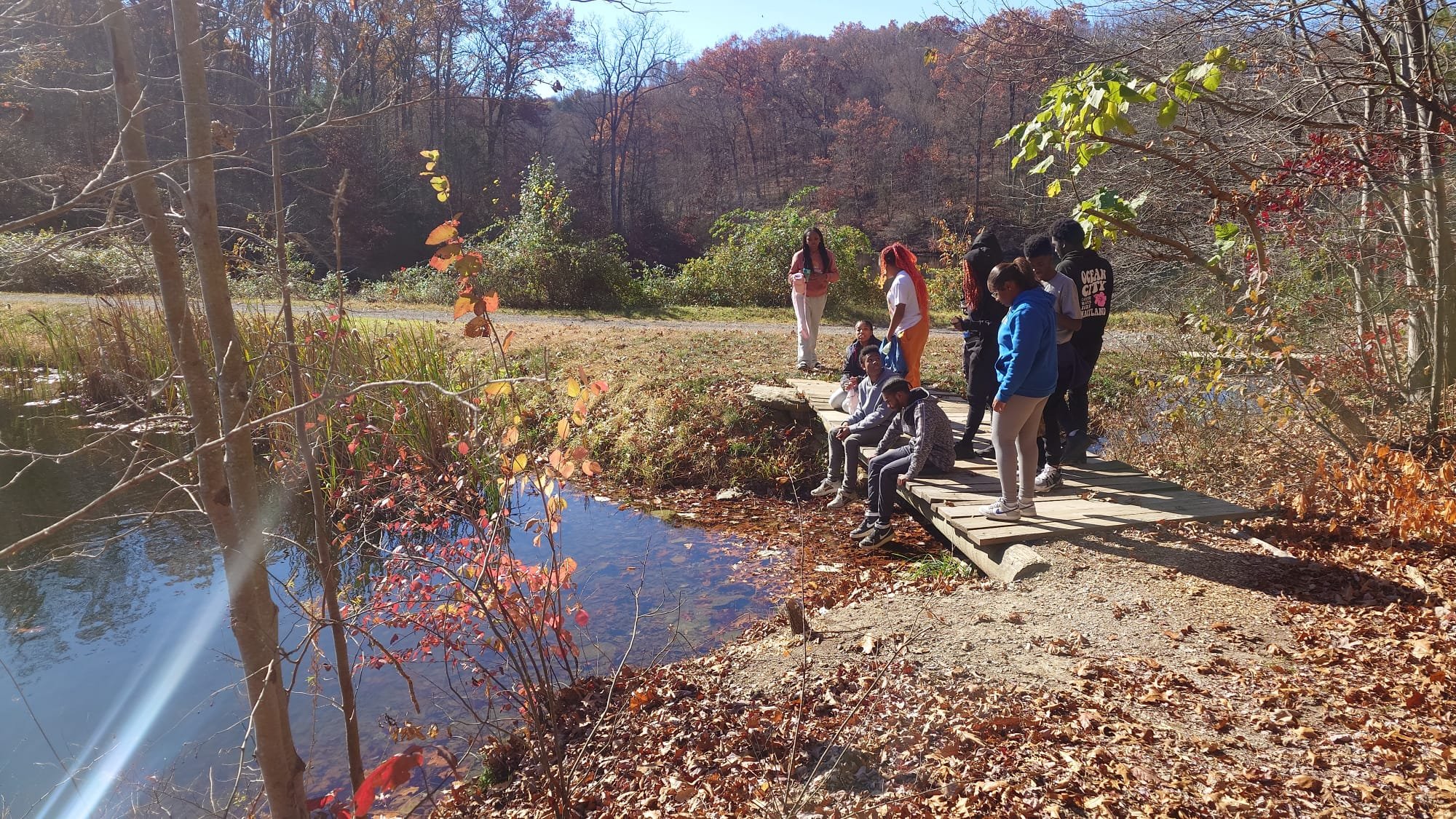
Why Our Programs Matter
The Association of Experiential Education (AEE) and American Camp Association (ACA) emphasize the numerous benefits of outdoor experiences for all. Spending time outdoors is crucial for humans' emotional, social, physical, and mental development. Overall, outdoor education and camp experiences play a vital role in the holistic development of people, preparing them to be engaged, responsible, and productive citizens.
Physical Health
Outdoor activities help combat the sedentary lifestyle many children lead today. They promote physical health, help maintain a healthy weight, and address vitamin D deficiency through increased physical activity and sun exposure.
Camps and outdoor activities offer a break from technology, fostering mental well-being. They help in reducing stress and anxiety, while also providing a space for children to develop coping mechanisms and resilience.
Mental Health
Outdoor environments, such as camps, provide opportunities for children to build social skills, form deep friendships, and experience a sense of community. These settings encourage teamwork, communication, and leadership.
Social Skills
Camps focus on experiential learning, which helps children develop a sense of self-identity, self-worth, and independence. Kids learn to make decisions, solve problems, and handle failure, which are crucial life skills.
Personal Growth
Engaging with nature fosters an appreciation for the environment. Children who spend time outdoors are more likely to value and protect natural resources, which is essential for environmental stewardship.
Connect to Nature
Healthy Kids Outdoors Act
October 9, 2015
Today’s youth are experiencing less free and unstructured outdoor playtime in nature than previous generations — devoting an average of just four to seven minutes a day in unstructured play time versus an average of seven and one-half hours each day in front of electronic media. Our children’s health is declining as obesity and attention deficit disorders are rising. Children are experiencing reduced mobility and less range for exploration, including a reduction in walking or riding a bike to school, a growing fear of strangers and nature itself, the dramatic rise in obesity, as well as vitamin D deficiency and other health issues. Read More from the American Camp Association.
3 Important Lessons Kids Learn from Camp
October 15, 2023
Camps teach resilience, independence, and problem-solving skills that benefit kids during their camp years and beyond. While summer camp is a time for kids to have fun away from the pressures and responsibilities of home and school, it’s not all about making s’mores and sleeping under the stars. Camps teach resilience, independence, and problem-solving skills that benefit kids during their camp years and beyond. Read More from the American Camp Association.
The Impact of Camp Experiences on Social Skills and Happiness
November 1, 2015
With depression, anxiety, and addiction rates high among adolescents (Keyes, 2006), and many youth engaged in relational aggression and other damaging social practices like bullying, there is clearly a need to find effective interventions to improve social skills, relationships, and overall well-being in our young people. Camp professionals know from experience that camp can serve as a positive, often life-changing, psychological intervention for youth, but for the "noncamp" world to understand the potential benefits of summer camp, rigorous research needs to be conducted and disseminated. Many in the fields of psychology and youth development have not considered summer camp as an intervention or preventative alternative to more traditional approaches such as individual or group therapy. Therefore, many parents do not understand the potential benefits a camp experience may have for their child. Read More from the American Camp Association.
Fostering Creativity at Camp and in Life
January 1, 2016
Scott Barry Kaufman, PhD, is scientific director of the Imagination Institute in the Positive Psychology Center at the University of Pennsylvania, where he investigates the development and measurement of intelligence, creativity, and personality. He writes the blog Beautiful Minds for Scientific American and has written or edited seven books in pursuit of fostering creativity. His latest book, Wired to Create: Unraveling the Mysteries of the Creative Mind, which he co-wrote with Carolyn Gregoire, a senior writer for The Huffington Post, was released in December 2015. Read More from the American Camp Association.
Slow Down with Nature
Tedx Texas State University
Have you ever talked to a tree? Have you ever slowed down enough to listen to what the tree may be saying back to you? Watch full video from Tedx










